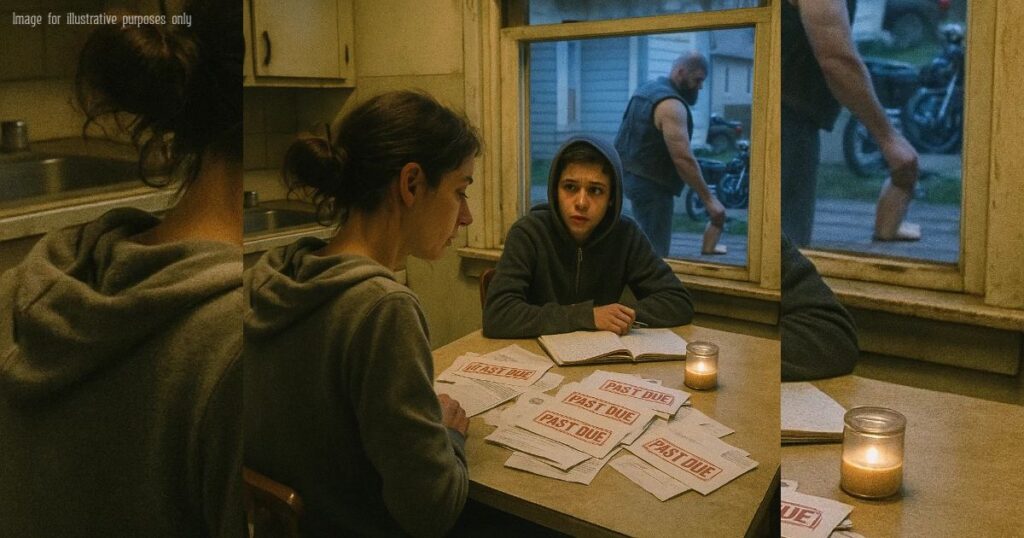He described my father with his hands up, palms open, voice steady.
Saying this kid is just caught up, let me handle him.
Offering himself as the one who could be written up instead. Reminding them they were all still neighbors under the uniforms.
“They could have ignored him,” Cole said. “But they didn’t.
They let me go.
Your dad caught the heat—lost hours, lost overtime, got called reckless behind his back.”
After that, my father hadn’t just walked away.
He’d found Cole sweeping in the depot a few days later and told him if he was going to hang around, he might as well clock in.
He showed him how to change oil, how to read a work schedule, how to call in if you were sick instead of just disappearing.
“I still messed up after that,” Cole admitted.
“I spent time away getting a real education in bad decisions. But every time somebody tried to convince me I was nothing, I’d remember your dad looking me in the eye like I was someone.”
When he finally got out and turned his life around, he ended up working at a garage owned by a man who hired people like him as long as they showed up and did the work.
A bunch of them—mechanics, drivers, roofers, guys who knew how to hold a wrench—formed a riding club called Local Hands. They each put a little money into a fund every month.
“When someone’s heater gets shut off or their car dies and they need it to get to work,” he said, “we try to help. Quietly. Nobody owes us anything. It’s just what we can do with what we have.”
A few months ago, one of the members brought a list of houses in our zip code that were behind on taxes or headed for foreclosure.
They couldn’t save them all. But they could pick a few and try to hold the line a little longer.
“I almost dropped the list when I saw your dad’s name,” Cole said. “I came here planning to knock on the door and tell him I made it out, tell him he was right to bother with some angry kid.”
Instead he found the notice on the door with my father’s name and the date he died. Underneath it, taped just as firmly, was the paper saying the house was in default.
“I sat on this step and cried harder than I have in years,” he said, not looking at me. “Then I went back to the guys and told them, if we could only keep one place out of the auction, it had to be this one.”
Since then, every envelope he’d left on our porch held receipts for partial payments on our back taxes or overdue utilities.
The candles were for my dad, a way of talking to him on the only front porch that had ever felt like home to Cole.
“I didn’t knock because I didn’t want to make you feel like you were taking charity from some stranger,” he said. “This isn’t a loan. It’s a thank you that’s already twenty years late.”
My vision blurred.
The little flame in the jar smeared into a line of light. Somewhere inside the house, I heard Tyler pacing near the door, waiting for me to yell or call.
“I thought you were here to mark our house,” I said, my voice shaking.
“People keep saying bikers are trouble, that they’re part of what’s wrong with this city. That nobody cares about blocks like ours unless they can flip them.”
He gave a small, tired smile.
“A lot of folks decided who I was before I opened my mouth,” he said. “Same way a lot of folks decided who you are as soon as they see your address.”
A memory rose up from where I’d shoved it down.
My dad at this same table, papers spread out between us, me telling him that standing up at meetings didn’t change anything.
Him saying, One day, something I did for somebody will come back to this house when you need it. Me answering that miracles weren’t going to show up on our front steps.
Now a biker, a candle, and a handful of envelopes full of receipts were sitting exactly where he’d said.
I pressed my hands to my eyes, but the tears escaped anyway.
“I was so mad at him,” I whispered. “I thought he cared more about saving the world than saving this house. I didn’t see he was trying to do both.”


